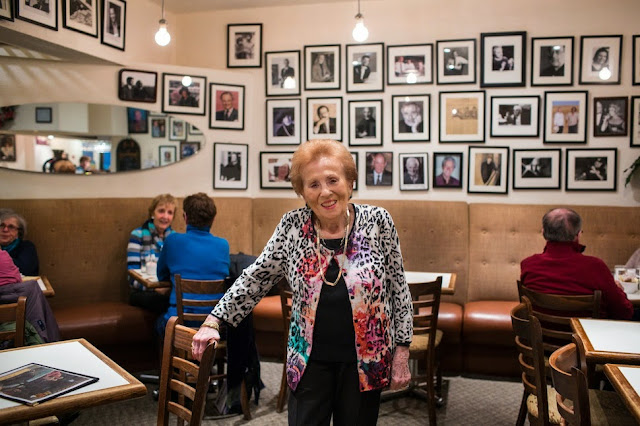Curb Your Appetite: Modern Food Trucks — the New Culinary Urbanism in London, Ontario
Curb Your Appetite: Modern Food Trucks — the New Culinary
Urbanism in London, Ontario
By BRYAN LAVERY
Last year London City
Council agreed to get public feedback on a proposed program to allow new-style
food trucks. The current bylaw is outdated, because it was drafted to deal with
catering trucks, hotdog carts and other vendors that have traditionally been confined
to private parking lots and special events.
The City revised their
initial food truck plan, and proposed a much less restrictive version that
balances the interests of stakeholders and encourages a vibrant street food
experience for the public. However, there are restrictions. There is expected
to be a 25-metre buffer zone separating food trucks from existing restaurants.
And don’t expect to see food trucks around the Covent Garden Market, or on
Dundas or King Streets downtown. They will also be required to stay clear of
schools, which have healthful-food guidelines.
There are additional
concerns that we are about to enter a new phase of corporate nuisance, where fast
food chains will eventually begin entering a marketplace populated chiefly by
innovative independents. The food truck phenomenon — up until recently, that is
— has chiefly been the domain of mobile entrepreneurs.
In the meantime, an
impartial food truck advisory review panel made up of volunteer representatives
(based on London's Urban Design Peer Review Panel) is being formed to provide
expert opinion and recommendations regarding food truck strategy in London.
In addition, the panel
will be charged with encouraging culturally diverse and original menu offerings,
and endorsing the promotion of healthy eating. As such, vendors would be encouraged
to be innovative and consider focusing on a variety of nutritious, seasonal,
fresh and local ingredients.
We are aware that
modern food truck vendors can be much more than their current limiting
stereotypes. Last year, some proponents of local food trucks wanted to see
the health benefits and uniqueness of prospective trucks evaluated by
representatives from the city or an appointed committee. This is not something that should be
evaluated arbitrarily by city officials or their proxy and the city seems to be
in staunch agreement.
At the moment it
appears that there will be no selection criteria based on proposed menu
offerings, business plan, innovation, and level of vendor experience or overall
impact to London’s food truck/street food culture. However, it is too early to
try to define what that culture should look like, and consumers will ultimately
determine its future and success.
Active consultation and
participation in food truck and street food vending programs, in partnership
with bylaw and regulatory services, will foster food safety — both in the
reduction of potential food safety issues and in the promotion of healthy
eating while providing advice on food safety issues.
Food trucks have their
detractors in the restaurant community and there has been some special interest
interference across the province. Recently, the Ontario Restaurant Hotel and
Motel Association (ORHMA) got involved in discussions with various Southern
Ontario municipalities, including London, on the wave of food trucks gearing up
to set up operations. The argument against food trucks is that they're stealing
the business of more established bricks-and-mortar restaurants. We have seen no
evidence suggesting food trucks have undermined anyone’s business, restaurant
or otherwise.
It is true that food
trucks have some advantages over a traditional eat-in restaurant. Mobility and
the ability to travel to where the customers are is a definite plus. Generally
speaking, food trucks have lower overhead than restaurants, and require less
staff. However, a food truck is still a labour-intensive business that requires
a lot of work and attention.
Food trucks are already
subject to standardized health and safety regulations and inspections. Local
proponents are hoping that policies and guidelines can be developed and
vetted quickly to ensure greater accessibility of food trucks/street food in a
way that balances all community interests.
Modern food trucks
serve a diverse variety of healthy options and cultural foods in other cities.
They are positioned to incubate new businesses and become an alternative
launching pad for healthy, creative food.
We like food trucks
because they stimulate culinary innovation and diversity, draw culinary
tourists, provide employment, and contribute revenue to the city. They help
stimulate community, and are destined to become an important part of the social
and culinary fabric of the city. Let’s hope to see some positive resolution in
the upcoming months.
http://ethicalgourmet.blogspot.ca/2014/01/goodah-gastrotruck-and-case-for-food.html





Comments
Post a Comment